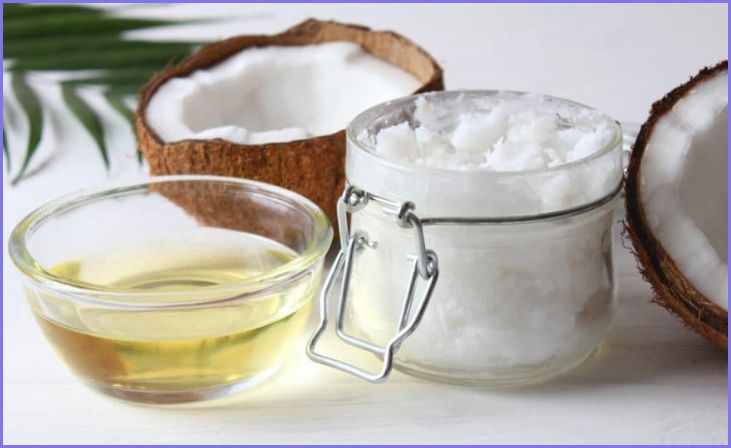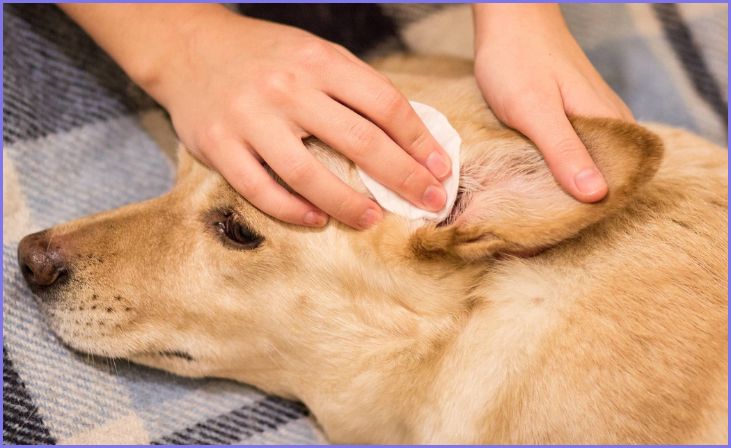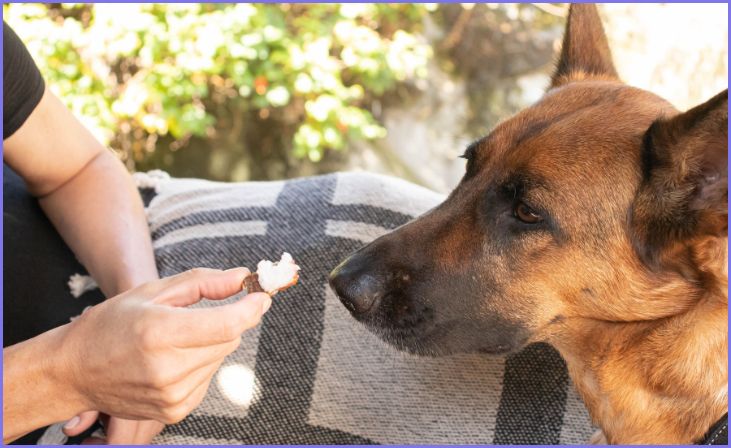Discover the versatile world of coconut oil and its myriad benefits for your furry friend. From promoting a healthy coat to supporting digestion, this natural powerhouse offers nine remarkable ways to enhance your dog’s overall well-being. Dive into the goodness of coconut oil and explore how this simple yet effective addition to your dog’s routine can contribute to their vitality, inside and out.
Whether it’s soothing skin irritations or adding a nutritious boost to meals, coconut oil proves to be a valuable ally in caring for your canine companion. Uncover the secrets of this tropical gem and embark on a journey towards a happier, healthier life for your beloved pet.
Uses of Coconut Oil for Dogs

Discover the holistic benefits of coconut oil for dogs! From promoting a lustrous coat to aiding digestion, explore nine ways this natural remedy can elevate your canine companion’s health and happiness. Embrace the goodness of coconut oil for a vibrant and thriving pet.
Skin and Coat Health
Coconut oil is a game-changer for your dog’s skin and coat health. Its moisturizing properties help combat dryness, flakiness, and itchiness, providing relief for skin irritations. Additionally, the oil’s lauric acid content has natural antibacterial and antifungal properties, contributing to a healthier coat. Regular application of coconut oil can enhance the shine and smoothness of your dog’s fur, making it an excellent solution for dull or brittle coats. Whether applied topically or ingested, coconut oil supports the overall well-being of your canine companion, leaving them with a luscious, gleaming coat and happy, contented skin.
For More- 8 Dogs with Long Ears
Digestive Health
Incorporating coconut oil into your dog’s diet can be a boon for digestive health. The medium-chain fatty acids in coconut oil have antimicrobial properties that can aid in the balance of gut flora, promoting a healthy digestive system. This natural supplement may help alleviate issues such as constipation and irritable bowel syndrome in dogs. Introducing coconut oil in moderate amounts can contribute to smoother digestion, improved nutrient absorption, and a happier, more comfortable tummy for your furry friend. Always consult with your veterinarian before making significant changes to your dog’s diet, ensuring the best approach for their individual needs.
Joint Health
Coconut oil’s potential benefits extend to joint health in dogs. The anti-inflammatory properties of this natural wonder may offer relief for dogs dealing with arthritis or joint discomfort. By incorporating coconut oil into their diet, you can provide your furry friend with a source of healthy fats, specifically medium-chain triglycerides (MCTs), which can contribute to reduced inflammation. This can result in increased mobility and enhanced joint function, allowing your dog to move with greater ease and comfort. As with any dietary changes, it’s advisable to consult your veterinarian to ensure the right approach for your dog’s unique health requirements.
Oral Health
Coconut oil can play a role in promoting oral health for your dog. Its natural antibacterial and antifungal properties may help combat harmful bacteria in the mouth, potentially reducing the risk of plaque buildup, bad breath, and oral infections. Introducing coconut oil through oil pulling or as an additive to your dog’s food can contribute to overall dental hygiene. The oil’s lauric acid content supports the fight against bacteria, creating a more favorable environment for your dog’s oral well-being. As with any oral care routine, it’s essential to complement coconut oil use with regular veterinary check-ups and professional dental care for optimal dental health in your canine companion.
Ear Cleaner

Coconut oil serves as a gentle and effective ear cleaner for dogs. Its natural properties make it a safe alternative to commercial ear cleaners. Applying a small amount of warmed coconut oil to a cotton ball or soft cloth allows for gentle cleaning of your dog’s ears, helping to remove dirt and wax. The oil’s antimicrobial qualities can also assist in preventing ear infections and promoting ear health. However, it’s crucial to consult with your veterinarian before introducing any new ear cleaning routine, especially if your dog has pre-existing ear issues or a history of ear infections.
Paw Protector
Coconut oil acts as a natural paw protector for dogs, especially in harsh weather conditions. Applying a thin layer of coconut oil to your dog’s paw pads creates a protective barrier against elements like hot pavement, ice, or rough terrain. This not only helps prevent paw pad injuries but also contributes to maintaining moisture and softness. Additionally, the oil’s anti-inflammatory properties can soothe cracked or irritated paw pads. Regular use of coconut oil as a paw protector is a simple yet effective way to keep your canine companion’s paws healthy and resilient, promoting overall paw comfort and well-being.
Bug Repellent
Coconut oil can serve as a natural bug repellent for dogs. Its pleasant scent and texture make it a gentle and effective solution to help ward off insects like fleas and ticks. Applying a small amount of coconut oil to your dog’s coat, particularly in areas prone to infestations, may create a protective barrier against these pesky pests. The oil’s antimicrobial properties can also contribute to keeping your dog’s skin healthy. However, it’s important to note that coconut oil alone may not provide complete protection, and additional preventive measures, such as regular grooming and vet-recommended flea and tick control, are advisable for comprehensive pest management. Always consult with your veterinarian before introducing new products to your dog’s care routine.
Wound Care
Coconut oil can be used for wound care in dogs due to its natural antimicrobial and anti-inflammatory properties. Applying a thin layer of coconut oil to minor cuts, scrapes, or skin irritations may help promote healing and prevent infection. The oil’s moisturizing qualities can also contribute to keeping the wound area supple and aiding in the overall recovery process. While coconut oil can be beneficial for minor wounds, it’s crucial to consult with your veterinarian for more severe injuries or if you notice signs of infection. Additionally, always monitor your dog’s behavior and the wound’s progression, seeking professional veterinary care as needed to ensure the best outcome for your pet’s health.
Weight Management

Coconut oil can be a helpful addition to a dog’s diet for weight management. While it’s essential to moderate the amount given, incorporating small amounts of coconut oil into your dog’s meals may provide them with healthy fats that can aid in weight control. The medium-chain fatty acids in coconut oil are believed to support metabolism and energy expenditure. However, it’s crucial to consider the overall caloric intake and dietary balance for your dog’s specific needs. Always consult with your veterinarian before making any significant changes to your dog’s diet, especially if they have existing health conditions or concerns about weight management. Regular monitoring and a tailored approach ensure the best outcomes for your dog’s overall well-being.
Also Read- 8 Dog-Friendly Summer Activities for Dogs
Conclusion
In conclusion, coconut oil offers a range of benefits for dogs, from promoting skin and coat health to serving as a natural bug repellent. Its versatility makes it a valuable addition to your dog’s care routine. However, it’s essential to use coconut oil in moderation and in consultation with your veterinarian to ensure it aligns with your dog’s specific needs.
FAQs
While coconut oil can be beneficial, it’s important to moderate the amount based on your dog’s size and health. Consult with your vet to determine an appropriate dosage.
In general, coconut oil is safe for most dogs. However, individual sensitivities may vary. Always introduce new elements to your dog’s diet gradually and monitor for any adverse reactions.
Yes, coconut oil’s moisturizing properties can help alleviate dry skin in dogs. Apply it topically or incorporate it into their diet after consulting with your vet.







